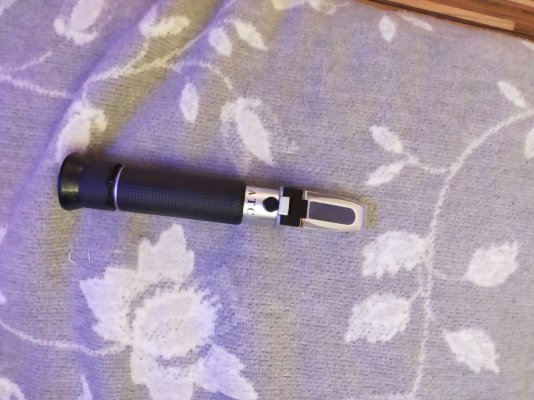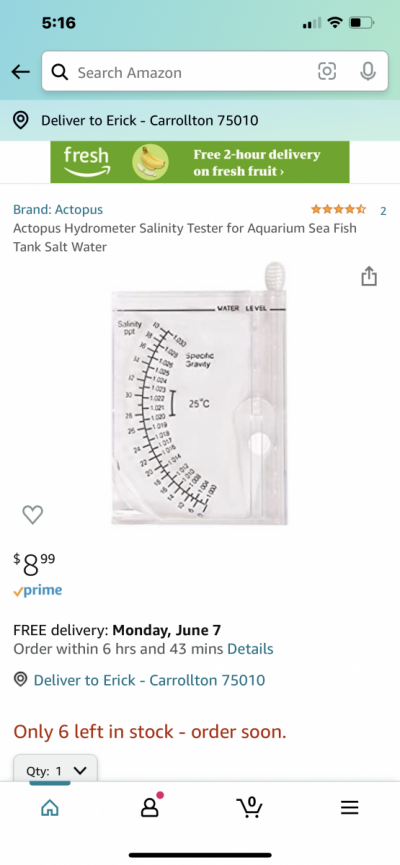- Joined
- May 31, 2020
- Messages
- 128
- Reaction score
- 130
I have tried The Hannah salinity tester (actually I have 2 of them), the brs refractometer, my lfs refractometer. I can't find a tool that makes me feel 100% confident in my salinity. The drift that I have from my Hannah is absurd. After 3 days of use and another calibration my salinity was apparently 4 points higher than what it had originally told me was 35 ppt. I honestly would calibrate the meter every time I used it if it didn't cost $1 per packet of calibration fluid! The refractometers need to be backlit by the sun and the line value changes based on what angle you are looking through it.
Then there is that Milwaukee Instruments meter with amazing reviews, but the issue is that it only has a resolution of 1ppt and an error of +/- 2 ppt! How do you know if your salinity isn't 33 or 37 ppt? How does it have such amazing reviews when your salinity could in actuality be between a range of 33-37 ppt?
Glass hydrometers are a pain because I'd have to completely turn off all my flow every time I want to check salinity.
My desperation is making me look into industrial solutions. I found a $500 industrial salinity meter at Grainger that I might have to suck up and buy. It's so difficult to measure one of the most fundamental parts of this hobby. We have tools for flow, Par, and everything else. No one has been able to make a salinity meter that actually works and you can be completely confident in.
Does anyone have thoughts on this? How do you measure the salinity for your tank? How do public aquariums and food manufacturing facilities measure the salinity of their water? That's what I want. Confidence I can put money on. In this case, its thousands of dollars of quarantined fish and coral.
Grainger meter
Then there is that Milwaukee Instruments meter with amazing reviews, but the issue is that it only has a resolution of 1ppt and an error of +/- 2 ppt! How do you know if your salinity isn't 33 or 37 ppt? How does it have such amazing reviews when your salinity could in actuality be between a range of 33-37 ppt?
Glass hydrometers are a pain because I'd have to completely turn off all my flow every time I want to check salinity.
My desperation is making me look into industrial solutions. I found a $500 industrial salinity meter at Grainger that I might have to suck up and buy. It's so difficult to measure one of the most fundamental parts of this hobby. We have tools for flow, Par, and everything else. No one has been able to make a salinity meter that actually works and you can be completely confident in.
Does anyone have thoughts on this? How do you measure the salinity for your tank? How do public aquariums and food manufacturing facilities measure the salinity of their water? That's what I want. Confidence I can put money on. In this case, its thousands of dollars of quarantined fish and coral.
Grainger meter




















